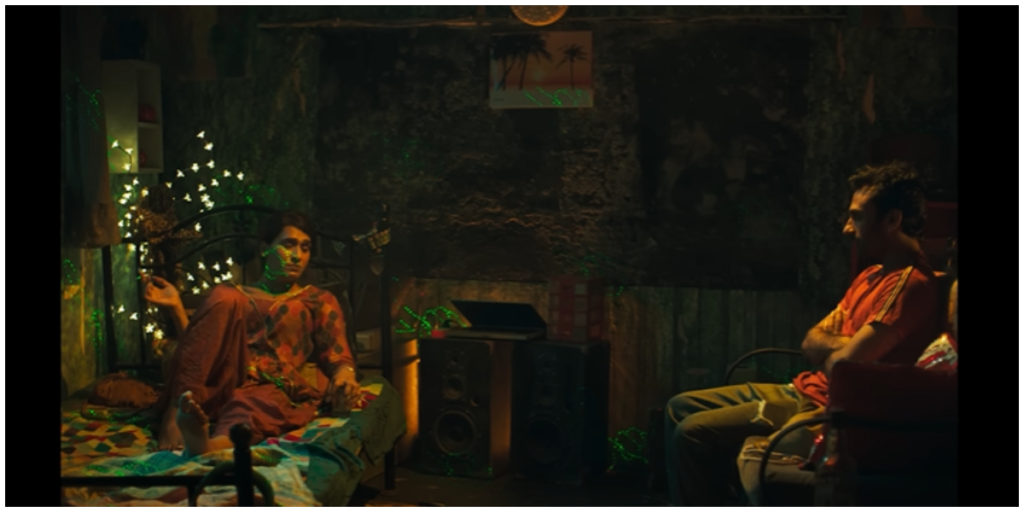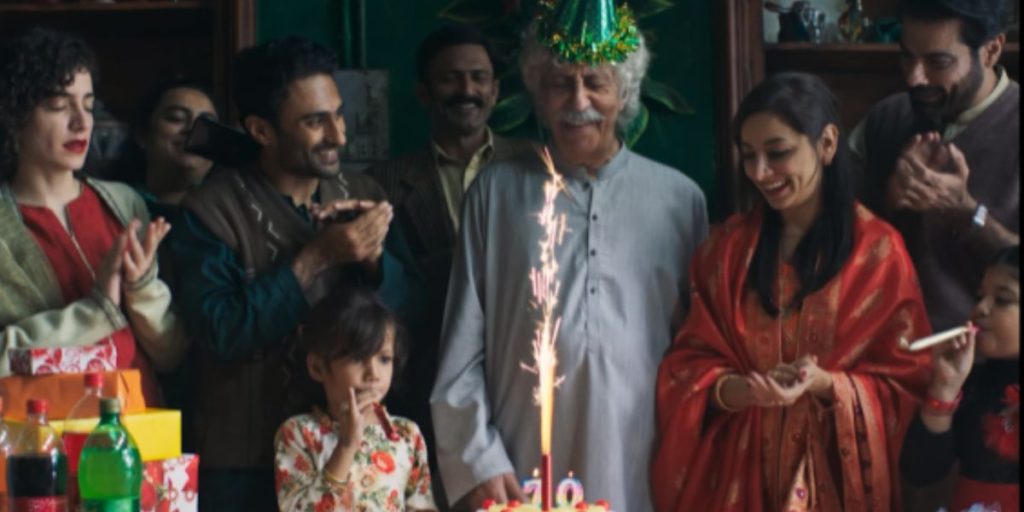
Arguably, Joyland has had quite an exhilarating, yet adventurous and bumpy ride. The film qualifies for the former as it has won multiple awards and is already globally acclaimed prior to its release in its home country, but the latter title is a result of all the brouhaha surrounding the film’s screening in the last few weeks.
Following the speculations about the film that claim it to be a threat to our “societal norms and values”, “Pakistani culture”, “morality”, a rational mind like me walked into the theater clueless as to what ignited this idea that a film can jeopardize a nation’s moral compass. But scene after scene, I realized that the outcry is a result of the film’s blatant honesty.
Joyland is a story that boldly ventures into exploring social stigmas about bodily autonomy, gender roles and sexuality. One of the tales is about the deep-rooted societal ostracisation of transgenders in Pakistan, and the transwoman is played by a transgender. It talks about socio-economic dependence and its strain on mental health. And most of all, it is a film that dares to remove the trappings of false masculinity. So, yes how can a storyteller in Pakistan dare to show us a mirror? Perhaps, it may challenge the age-old toxic notions of masculinity that are the building blocks of patriarchal dominance. A faction of society certainly can’t let that happen, right?

Haider and Mumtaz
In his debut feature, Saim Sadiq opens up viewers to a world that we rarely see in Pakistani cinema; a raw and real family from Gawalmandi, Lahore. The family members share love, laughter and ugliness in equal measure and they are strikingly nuanced.

The Rana family
Rana family houses five characters who are flawed and fragile human beings; they care for each other but are fighting with their demons and have skeletons in their closets. Salman Peerzada plays Rana Amanullah, a widower whose only pride in life is having two sons and is looking forward to see his grandson, Sohail Sameer plays eldest son Saleem, a man who is raised to believe being a man in the house equates to earning a livelihood and raising a male heir, his wife Nuchi (Sarwat Gilani) is a mother of four daughters who wants to birth a son to end her cycle of pregnancies. Ali Junejo plays the other son Haider, who is the so-called “bad seed” because he is unemployed and a house husband who pampers his wife Mumtaz (Rasti Farooq). She is a hardworking woman who wants to build a career but is forced to leave her job to give a boy to this family. Rana house is also frequently visited by Aunty Fayyaz (Sania Saeed), a widow who feels like a ghost at her home and seeks for companionship. There is also a transwoman Biba (Alina Khan) who is holding on to life with both hands to survive in a society that either fetishize or ridicule her existence.

Haider silently listening to his dance mates mocking Biba
From the clothes and house to the situations and emotions, not a single element in Joyland seems fabricated or polished. A number of themes in the story shatter or hint at toxic masculinity: a man who loves to cook, feed his family and put his nieces to sleep is not considered man enough if he cannot slaughter a goat. A husband hesitates to kiss his wife on her forehead even if she has just delivered their fourth child. A husband and wife in a marital bond may have suppressed their sexual desires in order to fit in. A married man falls for a transgender because he relates to her helplessness and she lets him be. A married man cheats on his wife but it is the wife who bears the brunt of it. The same wife who celebrates that her husband has finally got a chance at happiness even if it is as a backup erotic dancer for a transgender. A transgender who finds a compatible soul but she prioritizes her feelings and survival above all else.

Haider (Ali Junejo) with Biba (Alina Khan)
Read: Punjab govt decides to ban Joyland a day after federal govt clears it for screening
A closer look at these characters show that their decisions and actions oscillate in shades of grey. Unlike most cookie-cut personas on reel, they are real people like us with deep emotions, struggles, vulnerabilities, vices and virtues. They are all either yearning for love or acceptance, running towards a perceived sense of happiness or trying to escape from the shackles that traps them. The tussles are relatable and exhausting.
The performances of actors make this sharp script more praiseworthy. Each and everyone of them has delivered magnificently. However, Alina Khan, Ali Junejo and Rasti Farooq take the cake in my humble opinion. Sarwat Gilani’s powerful punch nearing the end is terrific, where as Sania Saeed and Salman Peerzada’s silence and stares speak volumes. It wouldn’t be wrong to say that the cast was destined to ace these roles. Special shout out to Abdullah Siddiqui and the music team for the amazing track that plays when Haider and Biba dance with their troupe.

Mumtaz and Nuchi
However, one fatal blow to Joyland are the minor cuts and edits in the film (roughly 9 minutes) that disturb the flow of storytelling. It is also one of the reasons why there are several overly simplified theories circulating about its characters. The censorship of words and scenes is amusing; for instance, they have beeped “blood spotting in early pregnancy” or blurred a harmless hug between Haider and Mumtaz who are playing a married couple. These blurred scenes also serve as a reminder of the blurred realities of life.

A scene between Biba and Haider which has been cut from the film.
As Manto rightfully wrote that if the society is unable tolerate his fictional stories, it means that the times we are living in are intolerable. Joyland is giving us that heart-wrenching reality check once again that there is a detrimental flaw in the workings of society. Wrapped in hearty laughs, haunting dialogues, disturbing relationship dynamics, and sore but mundane truths like life itself, the film leaves you with no lessons and gives you no closure.
As the end credits roll, I witness a defeated human presence in the middle of a vast sea, much like the insignificant uproar about the subject of this film dwindling in the jubilation of its triumph. In the end, anyone who will watch Joyland will vouch that it has indeed stories worth-telling, and writer and director Saim Sadiq has told them beautifully.
*Joyland has adult rating.






These must have been cut scenes from the film as you do not mention them. There are two scenes where Haider and Biba kiss passionately, and the second time Haider very clearly indicates his desire for a homosexual physical relation with Biba (and not through words). Biba has no such desires, in fact she’s outraged, so she throws him out and that is the end of their relationship. There is another scene where Haider’s wife looks on as a man outside the window pleases himself, and she does the same, before Saleem walks in on her. Was this cut too?
A rational mind like yours should not be so quick to pass judgement when key information is evidently missing. Joyland didn’t merely test the boundary, it went miles past. You may or may not wish to reconsider your views on the film after learning this, but at least you’re now better informed.
good luck